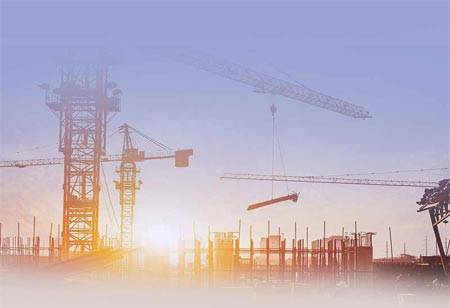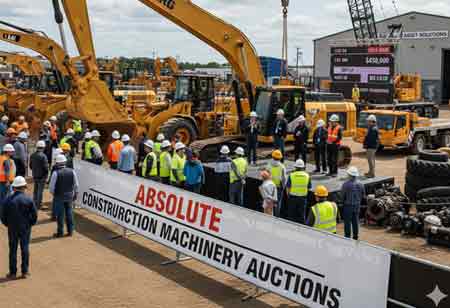Thank you for Subscribing to Construction Business Review Weekly Brief
Specials
- Apartment and Condominium Contractors Canada
- Decking Canada
- Architectural Glass Europe
- MEP APAC
- Construction Saudi Arabia
- German Apartment and Condominium Contractors
- Construction Law APAC
- Outdoor Construction
- Foundation Construction Canada
- MEP Canada
- Kitchen and Bath
- Cold Storage Construction APAC
- Precast Concrete Europe
- Construction Staffing Europe
- Pre-Construction Services
- Flooring System APAC
- Scaffolding Canada
- Swimming Pool Construction Canada
- Construction Management Canada
- Cold Storage Construction Canada
- Flooring Systems Europe
- Residential Construction
- Concrete Canada
- Construction Cladding Europe
- Construction Cladding APAC
- Concretes, Aggregates and Construction Materials APAC
- Concretes, Aggregates and Construction Materials Europe
- Commercial Contractors Europe
- Commercial Contractors APAC
- Dummy
- Construction Insulation, Coating and Waterproofing
- Construction Management APAC
- Landscaping Canada
- Construction Coating Europe
- Construction Tech Startups Europe
- Insulation Services Europe
- Mechanical Contractor Canada
- Mould Remediation and Testing Europe
- Swimming Pool Construction APAC
- Building Sealing Solutions Europe
- Construction Engineering Services
- Mechanical Electrical and Plumbing
- Roofing Systems Europe
- Architectural Glass APAC
- Startups APAC
- Construction Forensic and Owners Representative
- Flooring System
- Waterproofing APAC
- Wall Systems
- Safety and Compliance Europe
- Construction Bidding and Auctions
- Modular and Prefab Construction
- Architectural Glass
- Construction MENA
- Construction Demolition and Recycling Europe
- Modular Construction Europe
- Construction Interiors
- Steel Building APAC
- HVAC
- Doors and windows
- Construction Latam
- Building Information Modeling APAC
- Sustainable Construction APAC
- Building Restoration and Maintenance
- Commercial Contractors
- Specialty Construction
- Construction Engineering Canada
- Construction Engineering MENA
- Modular Construction Canada
- Modular Construction APAC
- Roofing and Siding Systems
- Workforce Management and Staffing
- Roofing Systems APAC
- Construction Consulting
- Steel Building Europe
- Construction Demolition and Recycling APAC
- Safety and Compliance APAC
- Concretes, Aggregates and Construction Materials
- Construction Cladding
Ways AI Helps Streamline Construction Management
Construction projects require quick and consistent interpretation of large data volumes. Due to the complexity of construction projects, large volumes of data must be interpreted quickly and consistently

By
Construction Business Review | Wednesday, January 17, 2024
Stay ahead of the industry with exclusive feature stories on the top companies, expert insights and the latest news delivered straight to your inbox. Subscribe today.
AI will assist construction companies with planning and sorting through time-consuming data, much like a reliable copilot. Managers can take preventative measures by using machine learning and historical data to forecast probable delays or project cost overruns.
Fremont, CA: Construction projects require quick and consistent interpretation of large data volumes. Due to the complexity of construction projects, large volumes of data must be interpreted quickly and consistently. This statement holds true for many projects, but the current construction data management paradigm is clearly outdated. Gathering and distributing data is a complex process and there is too much of it to be effectively processed and utilized. This is where AI comes in - to play a crucial role in managing and utilizing construction data.
How will artificial intelligence (AI) revolutionize the construction industry?
Scheduling and Coordinating Logistics:
In the construction sector, delays are an all too regular disruption. There is an urgent need for improved project management and planning because delays impact more than half of all construction projects. AI technology can help with these tasks. AI removes uncertainty from coordination and enhances the application of construction data management. With no possibility for disagreement or unanticipated events leading to delays, this allows for improved planning and project controls.
Revolutionizing Problem Solving:
The ultimate solution to problems is AI. It is capable of interpreting enormous volumes of data and using that data to make sophisticated decisions. This involves analyzing vast amounts of data, such as weather, cost, safety, and material usage statistics, to comprehend intricate construction difficulties that go beyond simply understanding these difficulties. It increases project scheduling accuracy, optimizes resource allocation, and predicts and prevents errors using machine learning techniques.





